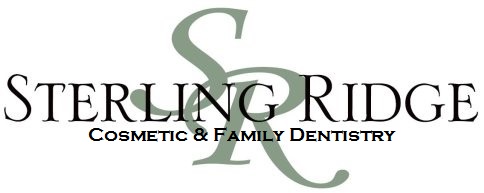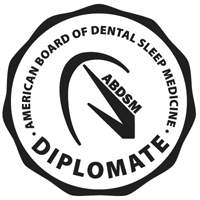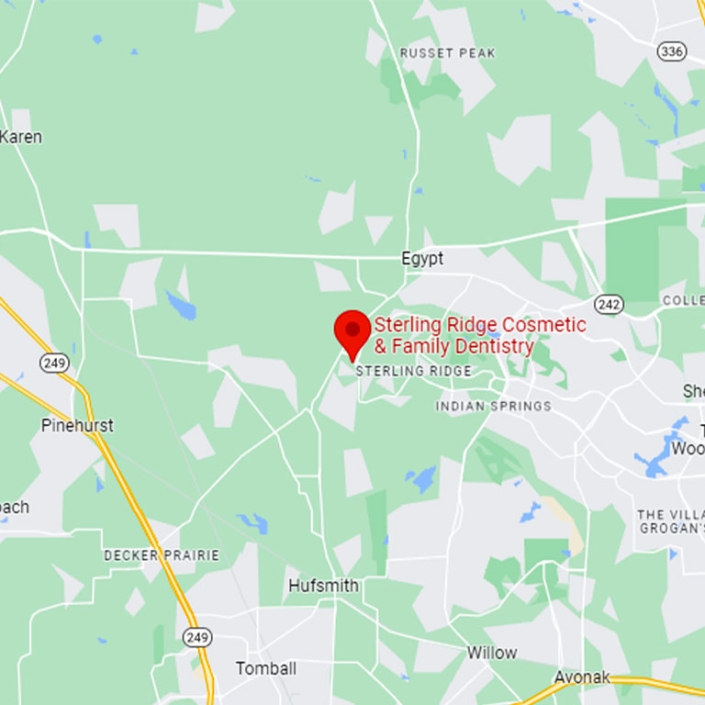Sleep Apnea

Snoring is caused when the jaw opens and the tongue falls into the back of the throat, causing the airway to narrow and forcing air through the small opening. This creates vibrations in the throat known as snoring. Although snoring seems physically harmless, it can be a warning sign of a more serious and dangerous condition called obstructive sleep apnea.
Obstructive sleep apnea occurs when the airway completely collapses, blocking airflow to the lungs. The harder one tries to breathe, the tighter the airway seals. This airway obstruction persists until the brain partially awakens the person, unconsciously closing the jaw and returning the tongue and throat to a normal position. This process can occur 50 or more times per hour while asleep, and meanwhile not enough oxygen is being received by the body.
If left untreated, sleep apnea can cause: memory problems, high blood pressure, increased risk of stroke, decreased life expectancy, weight gain, depression or irritability, difficulty concentrating, impotency, headaches, and daytime fatigue.
Did you know?
Sleep apnea during pregnancy increases your risk of high blood pressure, heart attack, stroke, obesity, depression, and heart failure. It has also been linked with gestational diabetes, preeclampsia, preterm delivery, and low birth weight.
Sleep apnea is a potentially serious sleep disorder in which you exhibit pauses in breathing while asleep (the word “apnea” means “without breath” in Greek). Pauses in breathing can last a few seconds up to a minute or even longer. Detecting an abnormality, the brain then tells the body to wake up to resume normal breathing, resulting in interrupted sleep and restlessness throughout the day.
Obstructive sleep apnea is caused by a blockage in the airway, most commonly when the tissue in the back of the throat collapses and closes while the subject is asleep. On the other hand, in Central sleep apnea, airways are clear but the brain still does not signal the muscles to breathe. While either type of sleep apnea can be serious, the good news is that you can receive treatment from Dr. Erica Cummings, your local dentist. Custom made oral appliances can effectively manage obstructive sleep apnea.
Because sleep apnea shows its most obvious warning signs during sleep and does not lend itself to detection through more common methods (such as blood tests or routine checkups), it can go undetected for years. Until properly treated, sleep apnea increases the risk of high blood pressure, heart attack, heart arrhythmias, stroke, obesity, diabetes, and cancer, not to mention increasing the risk of accidents during the daytime due to drowsiness. Be sure to schedule an appointment with Sterling Ridge Cosmetic & Family Dentistry right away if you notice any of these symptoms.
In order to find the proper course of action in treating sleep apnea, Dr. Erica Cummings will conduct various diagnostic tests and work collaboratively with local sleep physicians. For many years, the gold standard for treating sleep apnea was to have patients wear a Continuous Positive Airway Pressure (CPAP) machine while sleeping. However, due to claustrophobia and other reasons many patients find CPAP machines cumbersome and are unable totolerate using them. CPAP machines consist of a mask that fits over your face, a tube known as a cannula that blows air into your lungs, and a motor.
In patients with mild to moderate sleep apnea, Dr. Erica Cummings may recommend Oral Appliance Therapy. You will then be fitted for a custom oral sleep appliance that will bring the jaw forward to keep the upper airway free of blockages. Much like a mouthguard or a retainer, oral sleep appliances are comfortable and can help avoid more permanent measures, such as surgery.
In special cases, Dr. Erica Cummings may recommend surgery of the jaw, which will help pull forward the bone holding the tongue. While this surgery is known to be effective, it is still considered a last resort in the event that more conservative measures proved to be ineffective.


